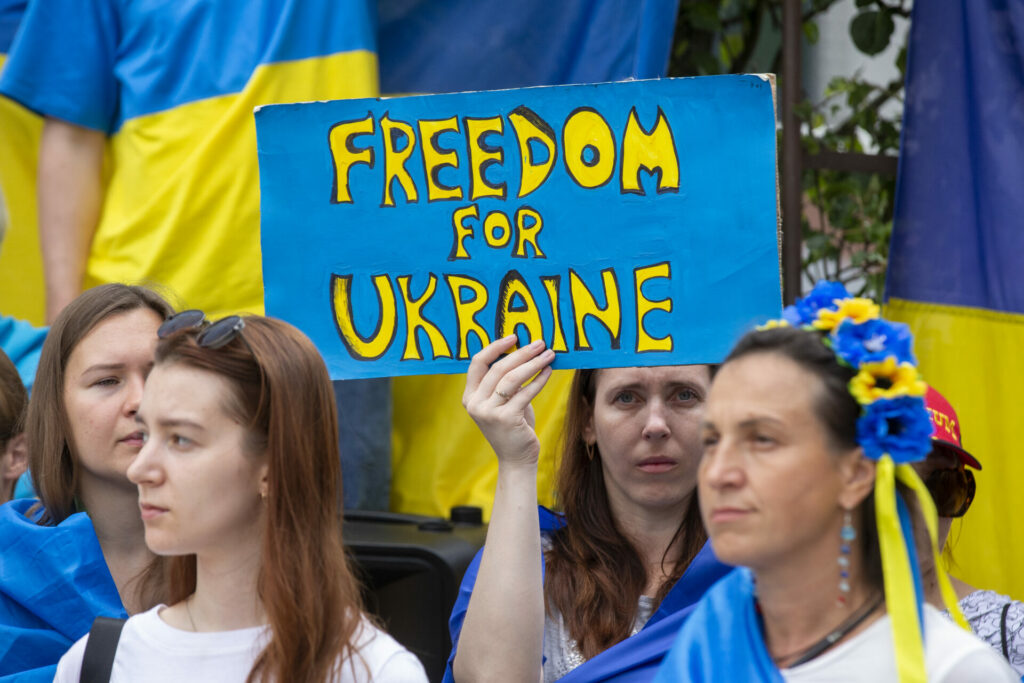The European Council agreed on Wednesday night to give Ukraine and Moldova official EU candidate status. Even if the process of becoming an EU member is likely to take years, European leaders commended the "historic day for Ukrainians and Moldovans."
After a long build-up over the last few weeks, the European Council on Wednesday officially granted EU candidate status to Ukraine and Moldova, which opens the long road to accession to the European Union. They join North Macedonia, Albania, Serbia, Montenegro and Turkey.
Ukraine President Volodymyr Zelenskyy praised the move. “Ukraine’s future is within the EU,” he said, thanking EU leaders for their support and affirming that this marks the biggest step in strengthening Europe, particularly when Russia's war is "testing our ability to stay free and united."
Moldovan President Maia Sandu also commented on an “unequivocal show of support for Moldova’s European future.”
'Roadmap to EU'
Georgia on the other hand was not given candidate status, but a "European perspective to accession," which is essentially a roadmap.
Thousands took to the streets this week to show support for EU accession, but Georgia had not been expected to be granted official candidate status as the Commission expressed concerns on governance and democratic standards.
Georgian President Salome Zourabichvili stated that the country would "work with determination" in order to make the necessary reforms in order to get EU candidate status.
Western Balkans made to wait longer
There had been controversy surrounding the status of other EU accession states, after Western Balkans leaders threatened to boycott the summit over concerns that European leaders were sidelining the EU aspirations of Serbia, Albania and North Macedonia. Leaders criticised the EU for the slow progress on their EU membership bids.
Bosnia-Herzegovina was also not granted official candidate status. After a delay in the Council due to divisions over a final statement, Council President Charles Michel commented on the new agreed text saying it “breathed new life” into Bosnia’s accession process. It will receive candidate status once it implements reforms in 14 policy areas.
North Macedonia, which already has candidate status, and changed its name in order to settle a dispute with neighbouring Greece, has seen its official statement over membership negotiations blocked by Bulgaria, with which it also shares a historical dispute.
Tensions have been rising over Bulgaria's veto on North Macedonia starting official accession negotiations, and the country is now facing political instability after the fall of the government.
Macron's European Political Community
French President Emmanuel Macron, speaking at the press conference following the announcement addressed the Western Balkans issue: "Is it fair to North Macedonia? No. There's been a lot of pressure on Bulgaria in recent months, this is the result of a political crisis in Bulgaria, we can't pretend that's not happening."
Related News
- European leaders expected to back Ukraine, Moldova EU candidacy
- PM De Croo in call with Zelenskyy: 'Belgium supports Ukraine's candidacy’
- Brussels Bar Association launches space to report Ukraine war crimes
However, Macron also pushed his idea of a wider European Political Community (EPC), of which not much is known so far.
“We are seeing enlargement fatigue. Countries have been in this process for years and years, it’s terrible. But it’s difficult to carry out these reforms. That’s why I proposed the EPC…”
“OK, you can join the EU, but it will take a lot of time. In the meantime, we need to think much more quickly about how we can stabilise our neighbourhood,” he stated.

